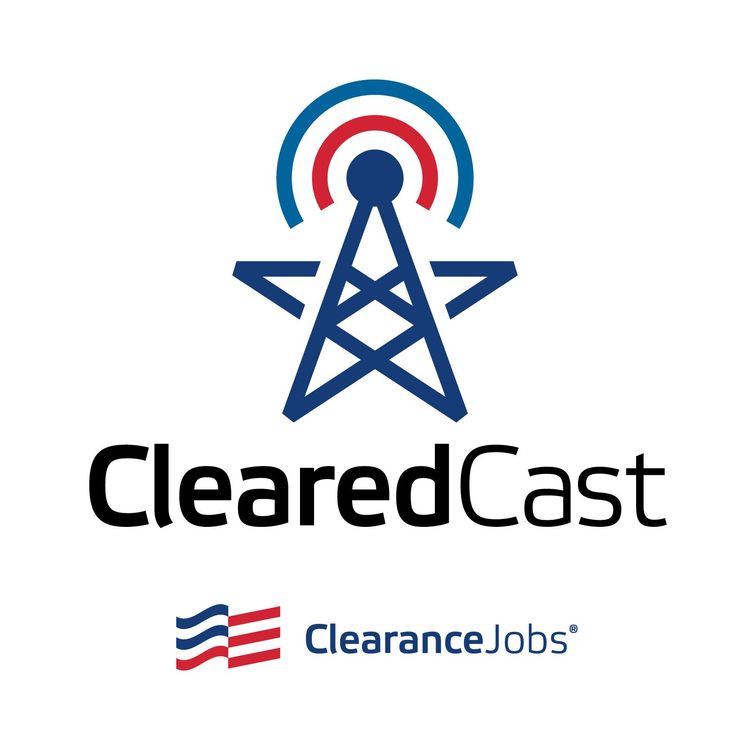Share

Security Clearance Careers Podcast
How to Build a Successful National Security Partnership
•
"Building the foundation of the relationship is critical to the future partnership."
Partnerships are important, especially in national security. ClearanceJobs' Manager of Partnerships, Jenn Magerer, joins the podcast to outline steps to creating a successful partnership. No matter if you are a recruiter, a candidate, a contractor, or government, critical partnerships are the way of the future when it comes to combatting today's and future adversaries.
Tune in to this podcast episode to learn the key steps to building a successful partnership.
More episodes
View all episodes

Why Workplace Flexibility Matters for the National Security Workforce
28:00|What does flexibility really mean for the national security workforce—and why does it matter now?In this episode, Lindy is joined by workforce strategist and former federal executive Mika Cross for a timely conversation on the future of federal and cleared work. Drawing from congressional testimony, workforce data, and decades of public service experience, they unpack how telework, hybrid models, and strategic flexibility directly impact mission readiness, talent retention, and national security outcomes.The discussion explores:Why flexibility is a national security imperative, not a workplace perkThe real costs of losing high-performing cleared professionalsMilitary spouse employment and its impact on readinessWhat the President’s Management Agenda signals for the federal workforceHow national security agencies can lead on agility, trust, and innovationThis episode offers critical insight for cleared professionals, federal leaders, recruiters, and policymakers navigating the evolving realities of government work.
How to Ace a Phone Screen With a Cleared Recruiter
30:08|For cleared professionals, the recruiter phone screen is often the deciding factor in whether you move forward. In just 20–30 minutes, a recruiter is assessing one thing: alignment. Stephanie Holman, a technical recruiter who has likely conducted hundreds, if not thousands of phone screens, joins the Security Clearance Careers Podcast to share her tips for job seekers.
NatSec@Work for the Cleared and Uncleared Workforce
06:07|From breaking through burnout to mapping new career paths, we are diving into the realities of change in a mission-driven world. And because growth is not only professional, our lifestyle stories tap into the season’s spirit: giving back, decluttering the noise, and setting fresh goals for the year to come.ClearanceJobs' Content Director and Graphic Designer discuss the magazine and where to learn more.
40 Year Career at the CIA Built Character for this Leader
23:32|For this episode of the Security Clearance Careers Podcast, we we explore leadership, ethics, and excellence in high-stakes environments. Today’s episode will reshape how you think about leadership, especially leadership where character and trust are at the foundation of leading groups in national security missions.Today we are thrilled to be joined by Harry Wetherbee, a former senior executive officer of the CIA, and author of The Character of a Leader: Lessons on Honor and Integrity in Command. In this short but powerful book, Harry draws on decades of work at the intersection of national security, intelligence, and moral responsibility to show what truly separates fleeting authority from enduring leadership.
Federal Holiday Parties, Alcohol, and Other Clearance Mistakes
23:49|Lindy Kyzer and Jill Hamilton talk about holiday party rules of engagement when working federal contracts. Would you normally dance to Cotton Eyed Joe if you didn't have that wine at the holiday party? Learn in this episode about other alcohol issues and your security clearance.
The Secret History of Women at the CIA – A Conversation with Liza Mundy
23:01|Women have been integral to the intelligence community since its earliest days, yet for decades their contributions remained obscured—hidden not only by secrecy but also by policy and silence. In her recent book, The Sisterhood: The Secret History of Women at the CIA, author Liza Mundy brings these untold stories to light. She traces the journeys of pioneering women who entered the CIA at pivotal moments and helped shape the agency from within. From Eloise Page, the first female chief of station, to Lisa Harper, among the first women to rise into the CIA’s Directorate of Operations, Mundy weaves together a powerful narrative of trailblazers whose impact has long gone unrecognized. In this conversation, she shares how she uncovered and connected these remarkable histories of women in the Agency.
ODNI and UVA's National Security Data and Policy Institute
16:26|Charles Luftig, Deputy Director of National Intelligence for Policy and Capabilities, joined the Security Clearance Careers Podcast to discuss the National Security Data and Policy Institute (NSDPI). He shared insights on the origins of the institute, why UVA was a natural match for this partnership, and the interdisciplinary nature of the NSDPI’s work.The National Security Data and Policy Institute (NSDPI) is a university-level institute launched by the University of Virginia (UVA) in August 2024—UVA's sixth such institution—backed by a $20 million contract. It unites expertise from academia, government, and industry to tackle national security challenges using data science, artificial intelligence, research computing, and public policy frameworks.
Secure BYOD in a World with Increasing Threats
22:22|In today’s mobile-first world, organizations juggle a tough balancing act: enabling employees to use personal devices while safeguarding sensitive data. BYOD, which stands for Bring Your Own Device, is a policy that allows employees to use their personal devices (like smartphones, laptops, and tablets) for work-related tasks. This practice has become increasingly common, offering convenience and flexibility for employees while potentially reducing costs for the employer. However, BYOD also presents security challenges that organizations need to address. Hypori, a company that offers a solution that reimagines BYOD, delivering uncompromising privacy, security, and compliance...all through a seamless virtual workspace... joins the podcast to discuss privacy, data, CMMC, compliance and more.
Law Practice Shares Insights for Federal Workers
24:18|There are many law practices in the DMV that proudly champion the workplace rights of federal employees, supervisors, and senior executives across agencies nationwide—helping preserve what is often their most valuable asset: their government career.Shehan Legal joins the Security Clearance Careers Podcast to talk about the current state of affiars for federal workers.